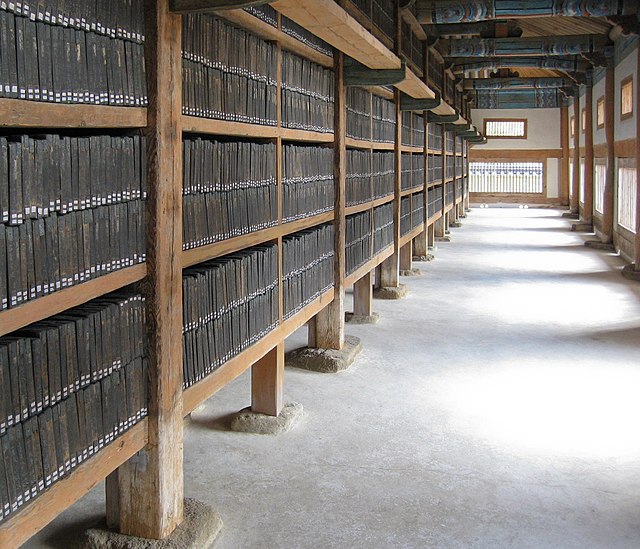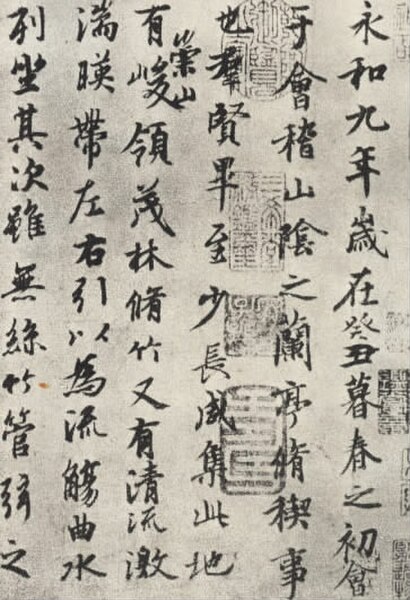The Chinese Buddhist canon refers to a specific collection of Chinese language Buddhist literature that is deemed canonical in Chinese, Japanese, Korean, and Vietnamese Buddhism. The traditional term for the canon is "Great Storage of Scriptures". The concept of the Chinese Buddhist canon was influenced by the Indian Buddhist concept of a Tripitaka, literally meaning 'three baskets' - sutras, Vinaya, and Abhidharma. However, Chinese Buddhists historically did not have access to a Tripitaka of Indian Buddhist texts. Rather, individual texts were brought to China individually or in small batches and translated one-by-one. This led to the creation of a distinct Chinese Buddhist canon.
The Tripiṭaka Koreana, an early edition of the Chinese Buddhist canon
Song Dynasty Chinese printed sutra page
Tripiṭaka Koreana printed sutra page
Chinese is a group of languages spoken natively by the ethnic Han Chinese majority and many minority ethnic groups in China. Approximately 1.35 billion people, or 17% of the global population, speak a variety of Chinese as their first language.
The Tripitaka Koreana, a Korean collection of the Chinese Buddhist canon
"Preface to the Poems Composed at the Orchid Pavilion" by Wang Xizhi, written in semi-cursive style





